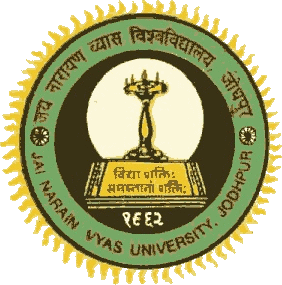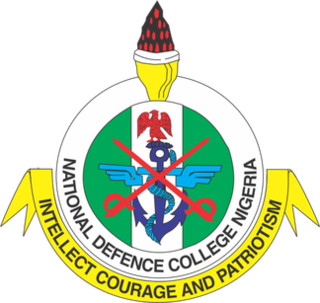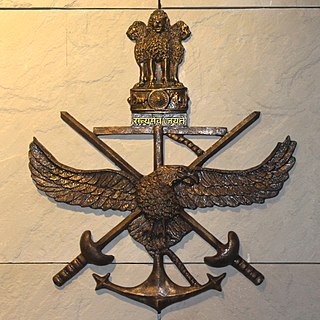
Osmania University is a collegiate public state university located in Hyderabad, Telangana, India. Mir Osman Ali Khan, the 7th Nizam of Hyderabad, issued a firman calling for its creation on 29 August 1917. It is the third oldest university in southern India, and the first to be established in the erstwhile Kingdom of Hyderabad. It was the first Indian university to use Urdu as a language of instruction, although with English as a compulsory subject. As of 2012, the university hosts 3,700 international students from more than 80 nations.

Cambridge Judge Business School is the business school of the University of Cambridge. The School is a provider of management education. It is named after Sir Paul Judge, a founding benefactor of the school. The School is a department of the university's School of Technology administrative group.
The Indian Defence services have established numerous academies and staff colleges across India for the purpose of training professional soldiers in military sciences, warfare command and strategy, and associated technologies.

Jai Narain Vyas University is an educational institution in Jodhpur, Rajasthan, India. The institution is the only residential university in the state, catering mainly to the needs of students of western Rajasthan (Marwar). Many of its research and development activities focus on the heritage, society, and challenges of the Thar Desert region, in which it is located. As the westernmost university of the country, research is conducted in border areas with Pakistan.

The Ministry of National Defence is one of the eighteen ministries of the Government of Romania.

The Ministry of Defence (MoD) is charged with coordinating and supervising all agencies and functions of the government relating directly to national security and the Indian Armed Forces. The President of India is the ceremonial commander-in-chief of the armed forces of the country. The Ministry of Defence provides policy framework and resources to the armed forces to discharge their responsibility in the context of the country's defence. The Indian Armed Forces and Indian Coast Guard under the Ministry of Defence are primarily responsible for ensuring the territorial integrity of India.
The Defence Services Command and Staff College (DSCSC) is situated at Batalanda, Makola (South) 12 Kilometers away from Colombo and its aim to develop the professional knowledge and understanding of experienced officers of the Sri Lanka Army, Sri Lanka Navy & the Sri Lanka Air Force to prepare them for the ranks of junior field officers in the army and the respective ranks of the Navy and Air force. The DSCSC was formerly known as the Sri Lanka Army Command and Staff College (ACSC).

The National Defence University (NDU), formerly introduced as Army War Course (1963–70), the National Defence College (1970–2007), is the military university of the Islamic Republic of Pakistan focused on military education and training for the armed forces, including Pakistan military forces and two hundred foreign participants. Formerly established on 28 May 1970 at Rawalpindi, its academic principles are focused on command instructions, national security, military strategy, and war studies among other specified academic disciplines. It is one of the oldest military education and training institutes in the country with additional enrollments reserved for the civil servants.

The Defence Chemical, Biological, Radiological and Nuclear Centre is a United Kingdom military facility at Winterbourne Gunner in Wiltshire, south of Porton Down and about 4 miles (6 km) north-east of Salisbury. It is a tri-service location, with the Army being the lead service. The centre is responsible for all training issues relating to chemical, biological, radiological and nuclear (CBRN) defence and warfare for the UK's armed forces.

The Bureau of Police Research and Development (BPR&D) was set up on the 28 August 1970 to further the objectives of the Government of India regarding the modernisation of police forces. It has since evolved into a multifaceted consultancy organisation. At present it has 4 divisions – Research, Development, Training and Correctional Administration.

The Ministry of Defence of the Republic of Azerbaijan or MN is an Azerbaijani government agency that is associated with the Azerbaijani military. The ministry is responsible for keeping Azerbaijan defended against external threats, preserving its territorial integrity, waging war on behalf of Azerbaijan, and the surveillance of the Azerbaijani sector of the Caspian Sea sea and airspace. The Minister of Defense is appointed and removed from the post by the Commander-in-chief of the Azerbaijani Armed Forces, the President of Azerbaijan.
The Army War College, Mhow (A.W.C.) is a defence service training and research institution of the Indian Army located in Mhow, Madhya Pradesh. It is a premier training institute of warfare and carries out research in tactics, logistics, contemporary military studies and improvement in military doctrine. The college trains about 2500-3000 officers of the Indian Armed Forces, as well as paramilitary forces each year.

Indian Defence Accounts Service (IDAS) is a Central Group 'A' Civil Service of the Republic of India established to provide Financial Advice, Payment, Accounts and Audit services to the Defence Services i.e. Indian Armed Forces and other allied organisations viz. Defence Public Sector Undertakings, Military Engineer Services, Border Roads Organisation, Defence Research and Development Organisation etc.
College of Air Warfare (CAW) is a defence service training institution of the Indian Air Force. The college conducts courses and programmes in the art of Joint Warfare, with special emphasis on employment of Air Power. The functional and the administrative control of the college is with the Training Command of the IAF. The current Commandant of the college is Air Vice Marshal Manish Khanna
The Joint Command and Staff College (JCSC) is one of the colleges of the UAE armed forces that specialize in teaching the art of war in general and the operational art in particular. The JCSC combines theory and practice as a basis for its instructional methodology and aims to develop leadership qualities in the students. The JCSC contributes to forming the concept of employment for the armed forces in joint operations and military operations in peacetime, such as peacekeeping and peace support operations.
The Defence Planning Committee is a senior decision-making organisation created on 19 April 2018 by the Government of India.
The Military Institute of Technology (MILIT) is a tri-services training institution of the Ministry of Defence of the Republic of India. Located at Pune, it trains selected officers of the three services of Indian Armed Forces and officers from friendly foreign countries for command and staff appointments. It conducts the Defence Services Technical Staff Course (DSTSC) for officers Indian Army, Indian Navy and Indian Airforce. The institute has a faculty of senior officers from all three services and scientists who provide specialized training on technologies, military warfare, procurement procedures and operational logistics to the student officers. The course trains officers to handle senior commands and staff appointments in the future. On successful completion of the course the officers are awarded with a degree of M.Sc in Military Technology from Pune University. Officers in the service bracket of 9 to 14 years attend this course. Most officers attending this course are of the rank of Lieutenant Colonel or Major and equivalent.

National Defence College (NDC), formerly known as the National War College (NWC), is an apex military training institution of Nigeria for senior military officer of the Nigeria Armed Forces.

Integrated Theatre Commands of the Indian Armed Forces are varying degrees of synergy and cross-service cooperation between the military branches of the Armed Forces. Following Independence, in 1949 a joint educational framework was set up starting with the first tri-service academy in the world, the National Defence Academy, and over the years this joint educational framework has been expanded to bring officers from the different services together at different stages of their careers.















